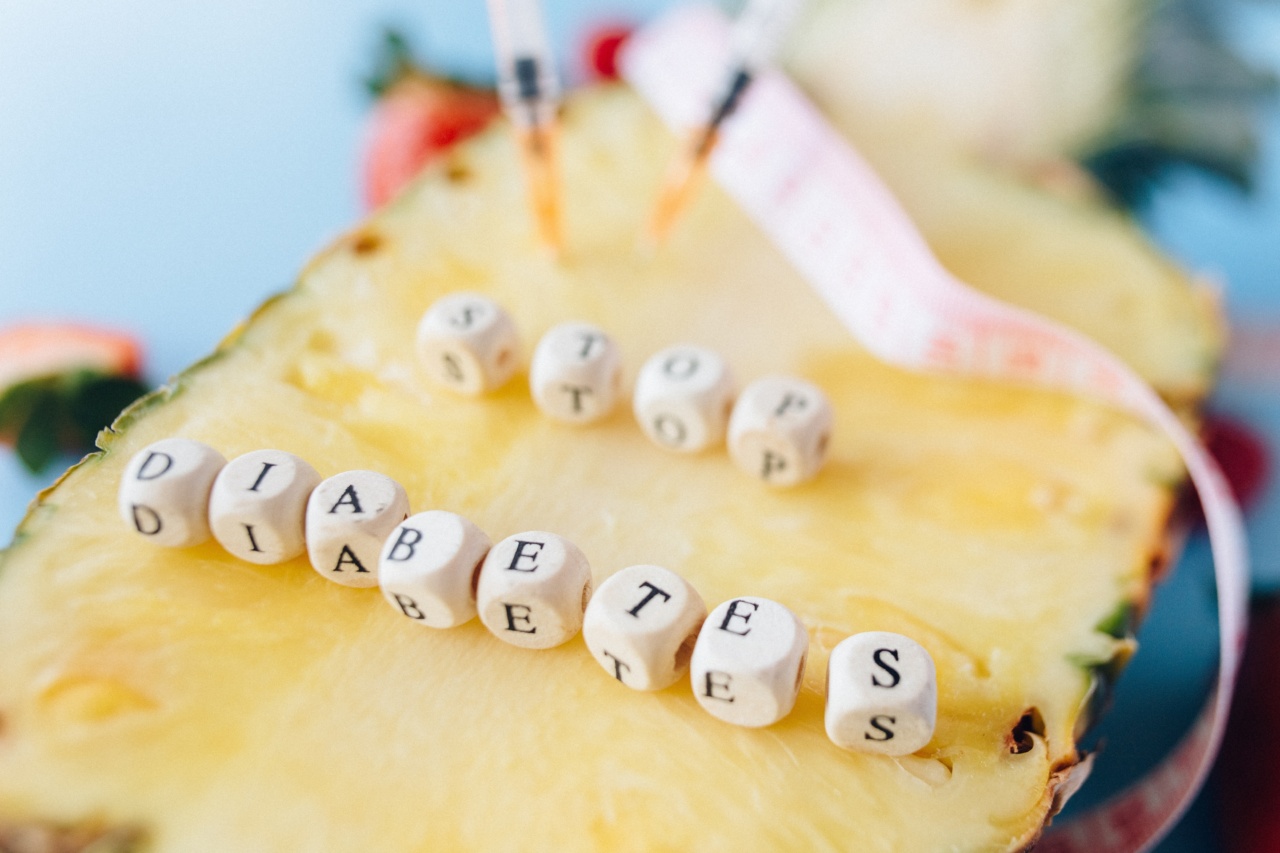Cancer is a complex disease that can affect different parts of the body. It can also be caused by a variety of factors, including genetics, lifestyle habits, and environmental exposure.
While some risk factors for cancer, such as family history and genetic mutations, cannot be controlled, there are many things you can do to reduce your risk of developing this disease. In this article, we will explore some of the things you can do to take control of your health and minimize your risk of cancer.
1. Maintain a healthy weight
Being overweight or obese can increase your risk of several types of cancer, including breast, colon, and pancreatic cancer. To maintain a healthy weight, aim to eat a balanced diet that is rich in fruits, vegetables, whole grains, and lean proteins.
Avoid processed foods, sugary drinks, and excessive alcohol consumption. Regular physical exercise can also help you maintain a healthy weight and reduce your risk of cancer.
2. Get regular screenings
Screenings can help detect cancer in its early stages when it is easier to treat. Men and women should start regular screenings at different ages and for different types of cancer.
For instance, women should start getting regular mammograms at the age of 50 to screen for breast cancer while men should start getting regular prostate exams at the age of 50 to screen for prostate cancer.
3. Quit smoking
Smoking is a leading cause of lung cancer and several other types of cancer. If you smoke, quitting can significantly decrease your risk of developing cancer.
While quitting smoking can be difficult, there are many resources and support systems available to help you quit, including nicotine replacement therapy and support groups.
4. Protect your skin
Exposure to ultraviolet (UV) radiation from the sun or tanning beds can increase your risk of developing skin cancer, including melanoma.
To protect your skin, you should wear protective clothing and a wide-brimmed hat when you are outside, seek shade when possible, and use sunscreen with an SPF of at least 30. You should also avoid tanning beds entirely as they are a source of concentrated UV radiation, which can increase your risk of skin cancer.
5. Cut down on processed and red meats
Processed and red meats, such as hot dogs, bacon, and beef, have been linked to an increased risk of colon cancer. To reduce your risk, try to limit your consumption of these foods and opt for lean proteins such as chicken, fish, and legumes instead.
You can also add more fruits, vegetables, and whole grains to your diet, which have been linked to a reduced risk of cancer.
6. Limit alcohol consumption
Drinking excessive amounts of alcohol can increase your risk of several cancers, including breast, colon, and liver cancer. To reduce your risk, aim to limit your alcohol intake to one drink per day for women and two drinks per day for men.
If you don’t drink, don’t start drinking alcohol in the name of cancer prevention—there are other ways to reduce your risk that don’t carry the same health risks as alcohol consumption.
7. Stay physically active
Regular physical activity can help you maintain a healthy weight, reduce inflammation in the body, and improve your overall health, all of which can lower your risk of cancer.
Aim to get at least 30 minutes of moderate-intensity exercise most days of the week. You can also incorporate more activity into your day by taking walks during your lunch break, using the stairs instead of the elevator, and parking farther away from your destination.
8. Reduce stress
While there is no direct link between stress and cancer, chronic stress can weaken your immune system, which can make it harder for your body to fight off cancer cells.
To reduce your stress levels, try practicing mindfulness, yoga, or other relaxation techniques. You can also try to limit your exposure to stressful situations or learn new coping mechanisms for dealing with stress when it does arise.
9. Get vaccinated
Several vaccines can help reduce your risk of developing cancer. For instance, the HPV vaccine can help prevent certain strains of the human papillomavirus, which can cause cervical cancer.
The Hepatitis B vaccine can also help reduce your risk of liver cancer, which is often linked to hepatitis B infection.
10. Know your family history
While most cases of cancer are not directly caused by genetics, some cancers can run in families.
If you have a family history of cancer, it’s important to talk to your doctor about screening options and ways you can reduce your risk of developing cancer. Your doctor may recommend more frequent screenings or genetic testing to determine if you are at higher risk for cancer.
Conclusion
Taking control of your health and minimizing your risk of cancer involves making lifestyle changes and being proactive about your health.
By maintaining a healthy weight, getting regular screenings, quitting smoking, protecting your skin, reducing your consumption of processed and red meats, limiting alcohol consumption, staying physically active, reducing stress, getting vaccinated, and knowing your family history, you can lower your risk of developing cancer and enjoy better health and wellbeing overall.































